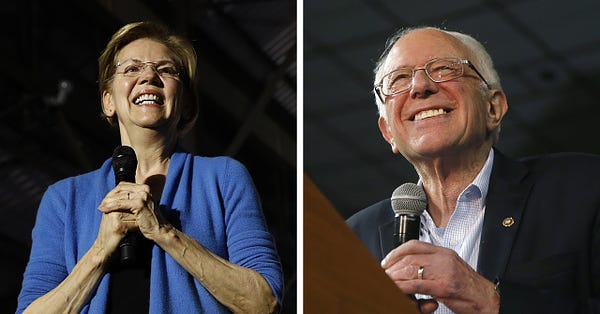US Election - The Global Perspective
How will international business be affected by the outcome of the US election?
A week from now the world could wake up to a new American president. Alternatively, like the 2000 election, it might prove too close to call until the impact of the mail in ballots is fully taken into account.
The outcome of this election will have far reaching consequences for economies, businesses and societies around the world. And the choice between Trump and Biden, Rebublican or Democrat, will feel starker this time around given the tilt to a somewhat more extreme style of politics.


A recent study out of Sweden has examined the shift to more authoritarian and illiberal forms of government around the world and specifically the increasing authoritarianism in the US since the tightly contested election of 2000. It seems that the Bush/Cheney partnership ushered in the beginnings of an anti-democratic trend for the GOP.
At the same time the Republicans have been making the case that a Biden led US will be more left leaning than usual and likely to pander to the socialist forces within. Biden’s cabinet selections would be telling.
The choice being made by Americans over the next week will affect us all. We have started to experience an impact with the rushed selection of the latest member of the US supreme court providing a disproportionate shift to the right for the top law court at a time when climate lawsuits, women's rights and race based cases are likely to pile up.
We are also experiencing a downturn in global stock markets as investors price in a possible Biden win, which would lead to a less strident free market approach, higher taxes, regulations and a likely painful transition of power. Added to this is the backdrop of a second wave of the pandemic which is likely to worsen significantly between now and the new leader getting installed in January.
In the short term, a Trump reelection might prove better for stock markets but perhaps less favourable for the response to the Coronavirus winter wave. The US started the second wave with a base level of around 40,000 new cases per day so it is possible that levels could quickly climb up to around 100,000 new cases per day. This would translate to tighter restrictions, hits to hospital beds, loss of life, the economy and ultimately the stock market.
The short term impact of a Biden win would make less of a difference internally until after the transition period. And his early months will be highly dependent on when a vaccine becomes available. The short term bump is more likely to be felt internationally, as governments around the world start talking again.
Global institutions such as the WHO, the UN, the OECD and NATO will regain some confidence and the various climate initiatives would be given a boost. Global trade might enjoy a slight uptick as a Biden led US will be perceived as more open to business with the rest of the world.
Britain might experience one of the more extreme early effects as a Trump win could embolden the Conservatives to walk away from Europe without a deal, with the consequent impact on the UK economy. Whereas a Biden win might force the UK into a compromise with the EU, partly because a trade deal with the US could take much longer to accomplish.
It is beyond the short term that the divergent effects of a Trump or Biden led America will be felt. A Biden win will mean higher corporate taxes and increased taxes for those earning over $400,000 per annum. This could help facilitate the acceptance of higher taxes across the Western world to pay for the pandemic and the current economic downturn.
Balanced against this, a left leaning US might be better at spending money on infrastructure, get-back-to-work initiatives and climate change solutions. This would prove to be negative for fossil fuel based oil and gas companies, coal manufacturers, traditional car manufacturers and heavy industry.
A Biden led US might also provide a boost for innovation, the creative sectors and the arts. While eco innovation across all sectors would be likely to accelerate. It is interesting to note that Amazon recently opened a dedicated section of their website for eco-friendly products. This might prove to be an early sign of the times.
Government regulation and intervention would be lighter under Trump. The exceptions being greater control of trade, the law courts, the media and immigration. Under Biden military and aerospace spending might be lower.
Probably the biggest change from a Trump to Biden presidency would be the shift in narrative. Biden is more likely to be a unifying president than Trump. This would ripple across the world. The tone would shift from an isolationist, introverted and US-selfish view of life toward a more open period of global cooperation. This would provide a boost to the EU, the US allies in general and for Japan and ASEAN economies that are pro-Western.
Russia and China would probably suffer a little more from a Biden presidency as he would work to unite pro-democracy countries against them. Biden believes that Russia is Americas greatest military threat and China its biggest economic threat.
Trump would be better for the private healthcare sector while Biden would likely provide a boon for state healthcare and pandemic management. Biden would remind us of the importance of the White House partnering with local government and scientists rather than trying to overly control them.
It seems hard to imagine that either direction would impact the tech sector that much. And technology companies probably have enough positive headwinds with the continued macro shift to all things digital and a generally positive backdrop for innovation given the myriad of problems to solve and the continued desire for higher returns in a low interest world.
Perhaps this election, more than anything, will provide a timely gauge on the direction of travel for democracy across the Western world. Recent polls are indicating a slight reversal in the support for more authoritarian, populist approaches towards more centrist, pro-democracy approaches.
At the least the US voters will help business leaders to better plan their organisations around a continued Trumpian free-market-at-all-cost environment or the beginning of a more social democratic era - not just in the US.
As always, the US sets the trends and the likely tone. Whichever way it goes next week, we may be in for another roller-coaster ride. The worse outcome of all would be another too close to call election, with months of bitter legal back and forth and the inevitability of fifty percent of the ticket feeling robbed.
Subscribe to Surviving to join the conversation via comments, Q&A sessions and more - its free! And follow us on twitter @LettsGroup.






